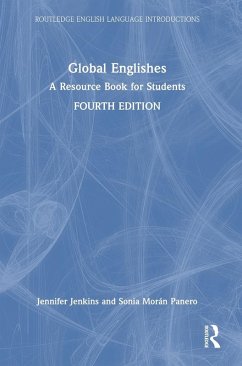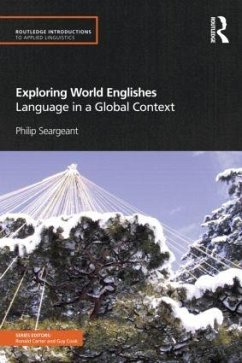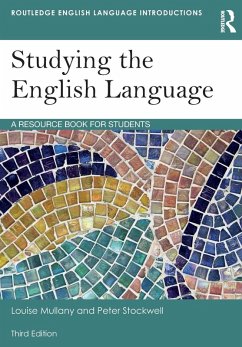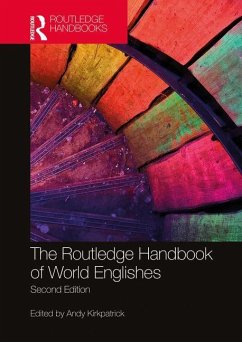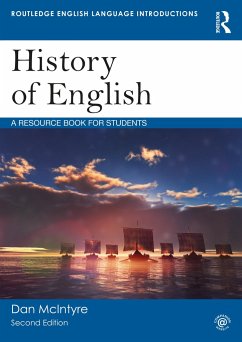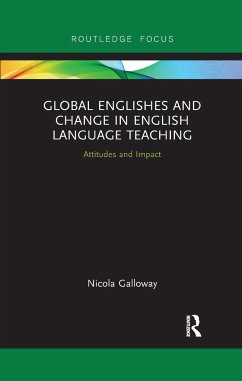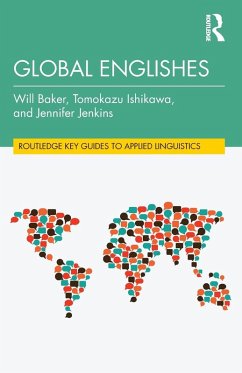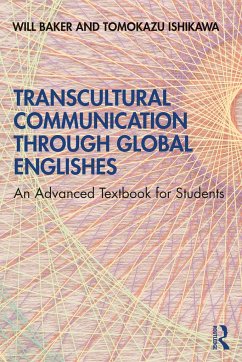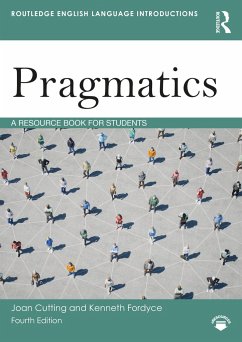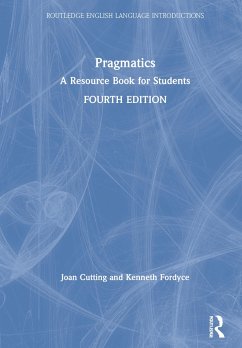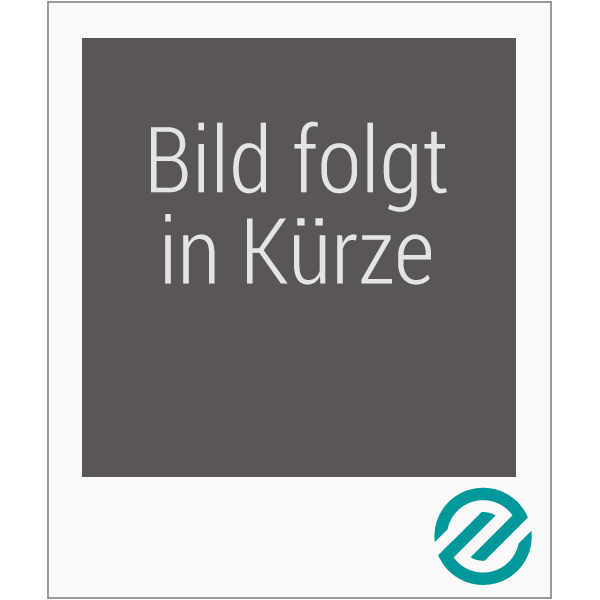
Global Englishes
A Resource Book for Students
Versandkostenfrei!
Sofort lieferbar
35,99 €
inkl. MwSt.
Weitere Ausgaben:

PAYBACK Punkte
18 °P sammeln!
Routledge English Language Introductions cover core areas of language study and are one-stop resources for students.Assuming no prior knowledge, books in the series offer an accessible overview of the subject, with activities, study questions, sample analyses, and commentaries.Global Englishes, Fourth Edition has been fully revised and updated and provides an introduction to the subject that is both accessible and comprehensive.Key features of this best-selling textbook include:- coverage of the major historical, linguistic, and sociopolitical developments in the English language from the star...
Routledge English Language Introductions cover core areas of language study and are one-stop resources for students.
Assuming no prior knowledge, books in the series offer an accessible overview of the subject, with activities, study questions, sample analyses, and commentaries.
Global Englishes, Fourth Edition has been fully revised and updated and provides an introduction to the subject that is both accessible and comprehensive.
Key features of this best-selling textbook include:
- coverage of the major historical, linguistic, and sociopolitical developments in the English language from the start of the seventeenth century to the present day;
- exploration of the current debates in Global Englishes, relating to its uses as a post-colonial language in Asia and Africa, a mother tongue in the US, UK, and Antipodes, and lingua franca across the globe, with a strong emphasis on China;
- new material on Latin America, English as a linguafranca, and English medium instruction;
- a range of texts, data, and examples drawn from emails, tweets, and newspapers;
- readings from key scholars including Alastair Pennycook, Henry Widdowson, and Lesley Milroy;
- updated online support material providing additional materials that are closely linked to each unit of the book.
Global Englishes, Fourth Edition provides a dynamic and engaging introduction to this fascinating topic and is essential reading for all students studying global Englishes more broadly, English as a Lingua Franca specifically, and the factors involved in the spread of English in the world today.
Assuming no prior knowledge, books in the series offer an accessible overview of the subject, with activities, study questions, sample analyses, and commentaries.
Global Englishes, Fourth Edition has been fully revised and updated and provides an introduction to the subject that is both accessible and comprehensive.
Key features of this best-selling textbook include:
- coverage of the major historical, linguistic, and sociopolitical developments in the English language from the start of the seventeenth century to the present day;
- exploration of the current debates in Global Englishes, relating to its uses as a post-colonial language in Asia and Africa, a mother tongue in the US, UK, and Antipodes, and lingua franca across the globe, with a strong emphasis on China;
- new material on Latin America, English as a linguafranca, and English medium instruction;
- a range of texts, data, and examples drawn from emails, tweets, and newspapers;
- readings from key scholars including Alastair Pennycook, Henry Widdowson, and Lesley Milroy;
- updated online support material providing additional materials that are closely linked to each unit of the book.
Global Englishes, Fourth Edition provides a dynamic and engaging introduction to this fascinating topic and is essential reading for all students studying global Englishes more broadly, English as a Lingua Franca specifically, and the factors involved in the spread of English in the world today.




